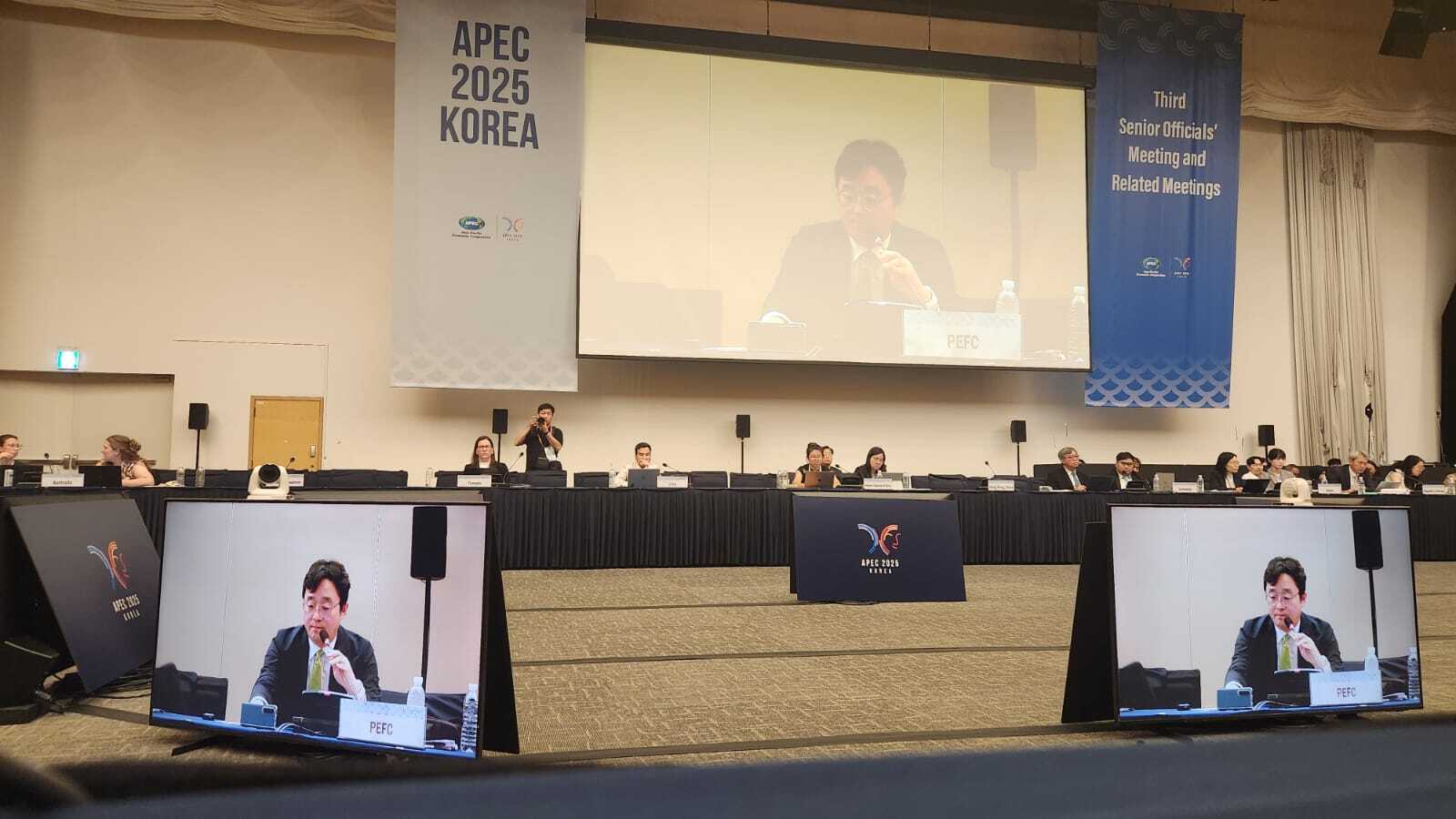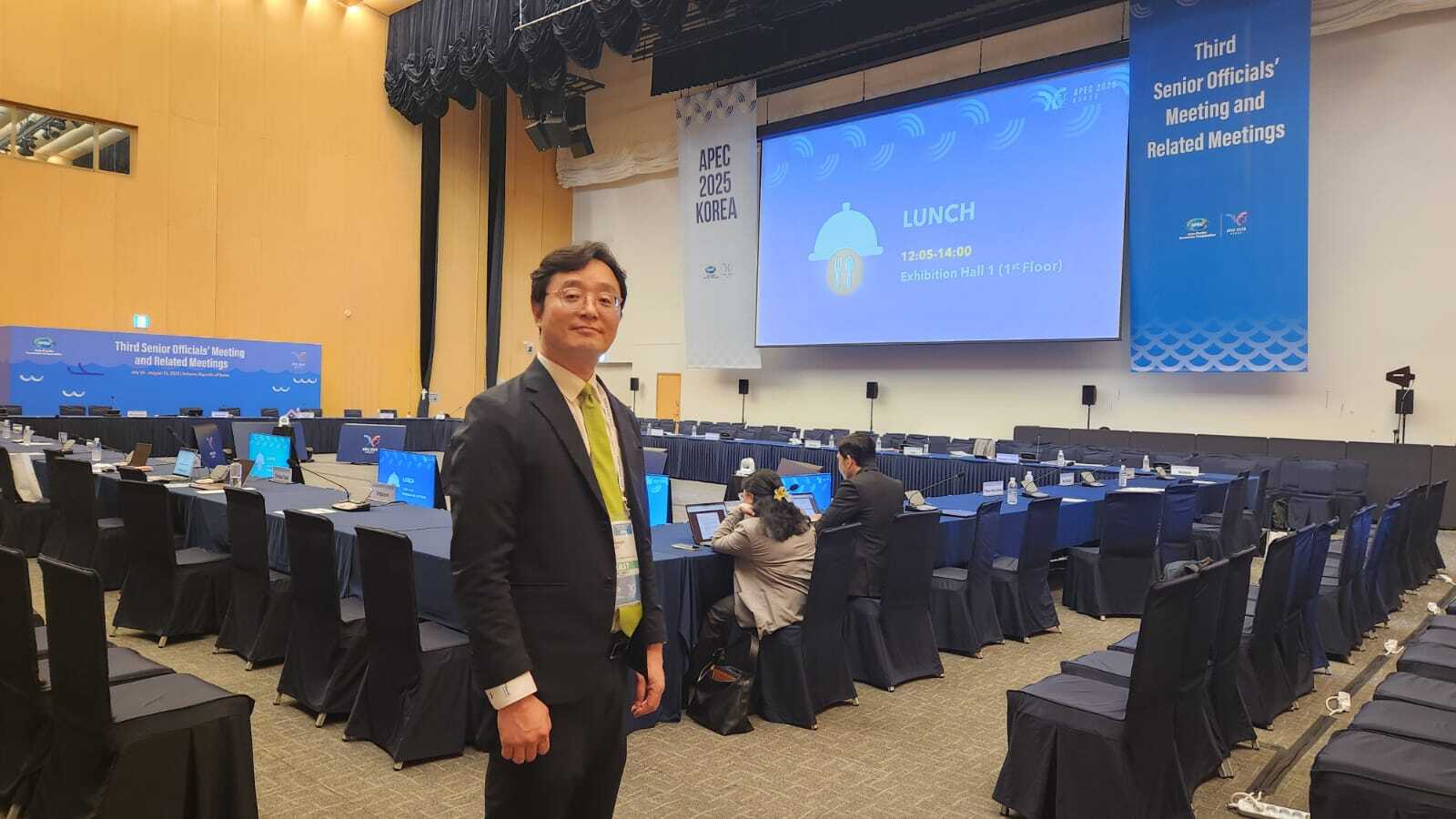PEFC highlights support for legal and sustainable timber trade at APEC EGILAT
Representing PEFC, Dr Soonjin So, Secretary General of the PEFC national member KFCC (Korea Forestry Certification Council), delivered a keynote address on empowering Asia-Pacific economies to safeguard forests through PEFC certification.
PEFC highlights support for legal and sustainable timber trade at APEC EGILAT
4 August 2025 Event report
PEFC reiterated its support for legal and sustainable timber trade across the Asia-Pacific region during the APEC Experts Group on Illegal Logging and Associated Trade (EGILAT), held at SOM3 from 28–30 July in Seoul, South Korea.

Representing PEFC, Dr Soonjin So, General Manager of the Korea Forestry Promotion Institute (KoFPI) and Secretary General of the Korea Forest Certification Council (KFCC), delivered a keynote address on empowering Asia-Pacific economies to safeguard forests through PEFC certification.
Dr So presented PEFC as a globally recognised, locally driven tool to support legality and transparency in the forest sector. He emphasised the strength of PEFC’s bottom-up approach, which empowers national stakeholders to develop certification systems tailored to their specific forest contexts.
A prime example of this model in action is PEFC national member KFCC (Korea Forestry Certification Council). Today, over 700,000 hectares of Korean forests - more than 11% of the national forest area - are PEFC certified.
These forests now supply a growing network of chain of custody certified companies across diverse sectors, from packaging and printing to timber and construction materials. KFCC’s success shows how national systems can scale up to meet sustainability goals while enhancing domestic market competitiveness and forest legality assurance.

Going beyond legality: PEFC’s social responsibility, environment, and biodiversity commitments

Dr So emphasised that PEFC certification goes well beyond verifying legal compliance.
At its core, PEFC’s Sustainable Forest Management standard integrates robust social and environmental safeguards.
This includes the protection of biodiversity, the conservation of forest ecosystems, and the promotion of ecological resilience. The standard also mandates respect for workers' rights, indigenous peoples, and local communities, ensuring that forest operations contribute positively to the people who depend on them.
By combining biodiversity conservation, social responsibility, and environmental protection with legal assurance, PEFC delivers a comprehensive framework that safeguards forests for current and future generations.
PEFC actively supports compliance with major international regulations - including the EU Deforestation Regulation (EUDR) and the Renewable Energy Directive (RED) - through updated standards and due diligence tools.
“PEFC is not only trusted and practical - we are also future-ready,” Dr So noted. “Our standards continue to evolve to help businesses and governments meet growing sustainability and legality expectations, while keeping smallholders and local communities at the centre.”
In closing, Dr So invited EGILAT economies to work more closely with PEFC in advancing shared goals.